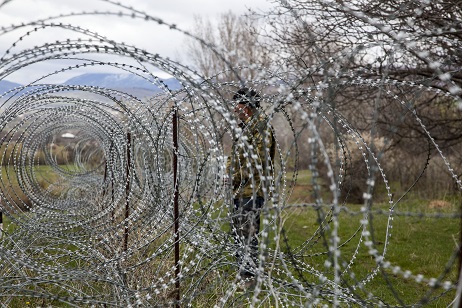PACE president “strongly condemns” Russia’s creeping occupation

The leader of the Parliamentary Assembly of the Council of Europe (PACE) has expressed her grave concern about Russia’s recent efforts to move deeper into Georgian territory and change the Administrative Border Line (ABL) in Georgia’s breakaway Tskhinvali region,.
PACE president Anne Brasseur said she "strongly condemned” Russia’s recent provocative actions and noted the situation was "alarming”.
"I have received extremely worrying information about unilateral changes to the ABL of the breakaway Georgian region of South Ossetia and about continuous borderisation of this ABL by Russian forces.
These actions are all the more alarming because of the proximity of the Baku-Supsa pipeline, which is of crucial economic importance for the region,” she said.
Brasseur stressed the Assembly had consistently expressed its support for the territorial integrity of Georgia, even now so as Russia provoked Georgia.
"I wish to reiterate our position: the borderisation of the ABL runs counter to international law and only serves to escalate tension. Instead of bringing people on both sides of the line together, these actions drive them further apart, which I can only strongly condemn as I did after I visited the ABL last May.”
The PACE statement comes days after Russia erected new so-called border signs along the ABL between Georgia’s breakaway Tskhinvali region (South Ossetia) and the rest of the country.
Russia’s illegal actions have already been condemned by international community, including European Union (EU), Lithuania, Latvia, the United States (US) and Ukraine.
Lithuania’s Minister of Foreign Affairs Linas Linkevicius shared strong message on his official Twitter account:
'Green men' in #Ukraine, now 'green signs' in #Georgia- #Russia 's aggressive disrespect of sovereignty must stop. https://t.co/Ssf98QPKza
— Linas Linkevicius (@LinkeviciusL) July 14, 2015
On July 10, Russian forces in occupied Tskhinvali installed banners marking the so-called "state border” on the territory adjacent to Tsitelubani village in Gori municipality and Orchosani village in occupied Akhalgori district, in close vicinity to the Tbilisi-Gori central highway. These actions saw Russia’s occupational forces advance 2km into Georgian territory.
 Tweet
Tweet  Share
Share